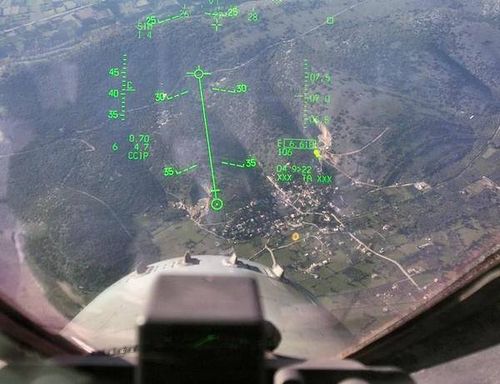Difference between revisions of "Air-to-ground weapons"
Jump to navigation
Jump to search
| Line 23: | Line 23: | ||
Though the Mk.84's are much more powerful, you can only drop one per pylon and you can't get good dispersion. Mk.82's are less powerful, but you can spread them through paired release pulses and you will saturate the target. | Though the Mk.84's are much more powerful, you can only drop one per pylon and you can't get good dispersion. Mk.82's are less powerful, but you can spread them through paired release pulses and you will saturate the target. | ||
| + | |||
| + | {{Nav UOAF}} | ||
[[Category:UOAF]] | [[Category:UOAF]] | ||
[[Category:UOAF: BMS Codex]] | [[Category:UOAF: BMS Codex]] | ||
Revision as of 04:19, 18 March 2017
Learning objectives
- Know how to use CCRP
- Know how to use CCIP
- Understand the loft cue
- Know how to configure bomb release
Iron bombs
Should you carry Mk.82's or Mk.84's?
- Mk.82: 500lb. bomb that has about 250lb. of tritonal explosive.
- Mk.84: 2,000lb. bomb that has about 1000lb. of tritonal explosive.
Three Mk.82's can be carried per station while only one Mk.84's can be carried on the same station.
Answer: It depends what you are trying to hit.
- Mk.84: Big Buildings and big targets that require less precision
- Mk.82: Small targets that require high precision
How to implement: If you are hitting an object that is large and easy to hit in both CCIP and CCRP, drop a pair of Mk.84's. If you are hitting a small and hard target like a hardened bunker, drop a total of 6 Mk.82's: Three release pulses in pair mode with 75 feet of spacing.
Though the Mk.84's are much more powerful, you can only drop one per pylon and you can't get good dispersion. Mk.82's are less powerful, but you can spread them through paired release pulses and you will saturate the target.
{{#invoke:Navbox|navbox}}
